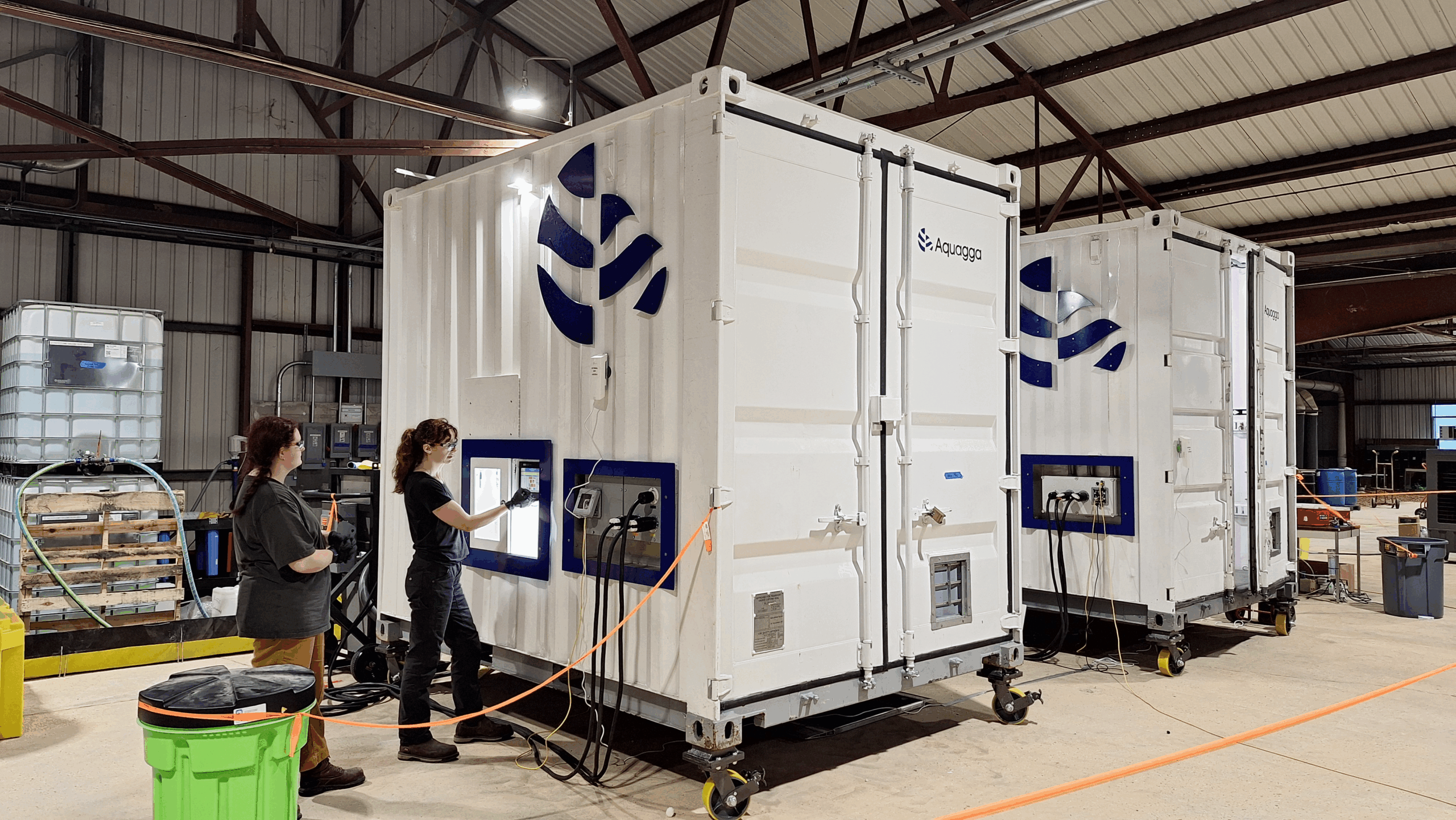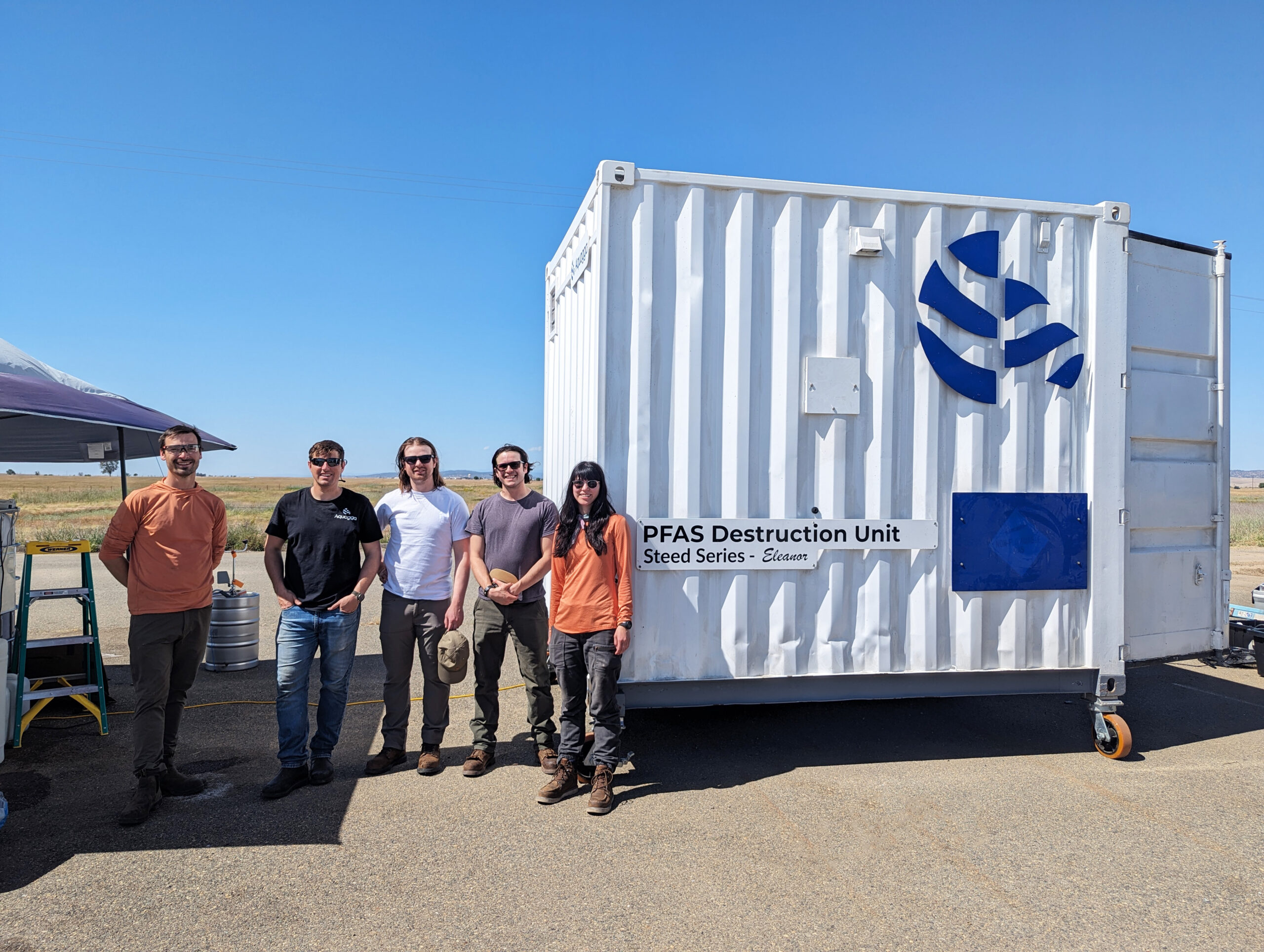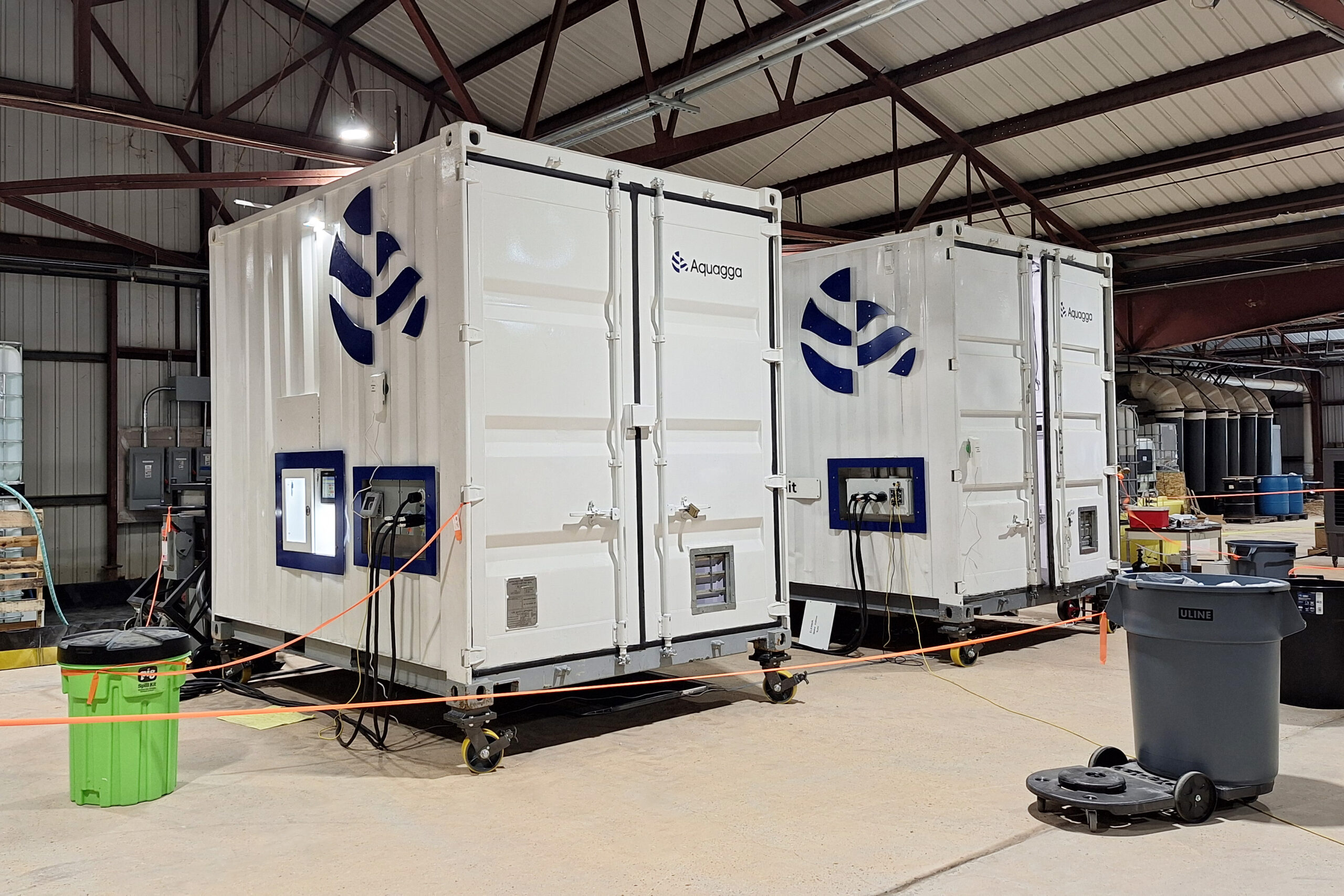Aquagga: The Tacoma Startup Turning the Tide Against PFAS and Earning National Recognition
Per and polyfluoroalkyl substances (PFAS), often called “forever chemicals,” are among the most persistent and dangerous contaminants in the world. Present in firefighting foams, manufacturing waste, cookware, packaging, and thousands of everyday products, PFAS do not break down naturally and accumulate in water, soil, wildlife, and people. For decades, no viable commercial destruction method existed.
That is changing because of Aquagga, a Tacoma-based cleantech startup transforming global PFAS management with its patented Hydrothermal Alkaline Treatment (HALT) technology. What began as a University of Washington research project has grown into one of the most promising environmental technology companies in the United States and a standout honoree in Greater Seattle Partners’ Uncommon Thinkers Awards.

Rooted in regional collaboration, Aquagga spun out of the University of Washington in 2019, with ongoing work with UW and the Colorado School of Mines to translate HALT from university labs to industrial customers. With support from UW CoMotion & the Buerk Center for Entrepreneurship, Cleantech Alliance, Maritime Blue, and the PNW Mission Acceleration Center, the company has grown to a team of 22 employees across the Puget Sound. The company chose to grow in Tacoma, Washington, because of the region’s innovation ecosystem, strong community and government support, and access to top technical talent.
“Aquagga’s growth is rooted in the strength of the Pacific Northwest’s innovation and cleantech ecosystems. The local network of innovators, researchers, and mission driven partners has been essential in helping us scale our impact, taking a concept from a lab and growing a company into a global leader in tackling PFAS contamination. We are excited to participate in the Greater Seattle Export Accelerator and expand our impact internationally,” said Chris Woodruff, Co-founder & COO at Aquagga.
Why PFAS Destruction Matters
In 2023, the Biden Harris Administration proposed the first nationwide PFAS drinking water standards, a regulatory milestone years in the making. The EPA moved to limit key chemicals such as PFOA and PFOS to near zero levels, citing strong links to cancer, immune suppression, thyroid disorders, and developmental harm. The proposed rules could require thousands of water utilities, military bases, and industries to treat PFAS contamination, creating a massive need for effective destruction technologies.
Reporting highlighted that PFAS have been detected in public water systems serving more than 200 million Americans. Instead of capturing PFAS, as many filters do, HALT destroys them by breaking the notoriously strong carbon fluorine bonds that give PFAS their persistence. Early demonstrations showed destruction levels greater than 99.99 percent, attracting national attention from government agencies, utilities, and private sector partners.
A Technology Powerful Enough to Fit in a Shipping Container
Aquagga’s system has been described as a “weapon of PFAS destruction that fits inside a 10 foot shipping container.” This compact, modular design makes on site treatment possible and eliminates the costly and risky practice of transporting contaminated material long distances for incineration or disposal. Aquagga has already proven HALT in field deployments, including under the Department of Defense Environmental Security Technology Certification Program, where PFAS contamination from firefighting foam is a major cleanup priority.

Dr. Brian Pinkard: An Uncommon Thinker Tackling a Global Crisis
At the center of Aquagga’s breakthrough is Dr. Brian Pinkard, Aquagga’s co founder and Chief Technology Officer, and a 2025 recipient of the Uncommon Thinkers Award.
Pinkard’s work began with early scientific curiosity and grew into a career dedicated to protecting communities from toxic contamination. His contributions demonstrate the purpose of the Uncommon Thinkers Awards: recognizing innovators who take bold, science driven action to improve the world.
Pinkard has led:
- The development of HALT from academic prototype to deployable industrial system
- Research, federal partnerships, and engineering leadership
- Commercial scaling during a period of rapidly advancing PFAS regulations
- The creation of a clean technology solution that can operate globally
Pinkard describes his focus as “impact driven innovation,” a philosophy that aligns with the Pacific Northwest’s growing climate and environmental technology leadership.

Who Aquagga Serves
Aquagga’s HALT systems are designed for organizations that generate or manage PFAS impacted wastes and need a safe, affordable, and effective destruction solution, including:
- Water utilities and wastewater treatment plants
- Defense and military installations
- Airports and emergency response agencies using AFFF
- Chemical manufacturers and industrial facilities
- Environmental remediation firms
As PFAS regulations become more stringent and cleanup requirements expand, Aquagga stands at the forefront of a major transformation in environmental health and public safety.

Ready to take advantage of everything Greater Seattle has to offer?
